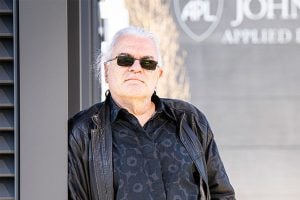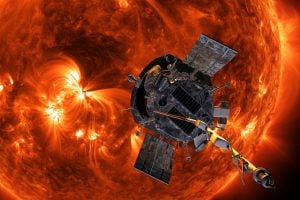
Space Systems Engineering Master’s Degree Program
As a student in the online space systems engineering degree program, you’ll learn from top subject-matter experts and practitioners from across the space community, including the Johns Hopkins University Applied Physics Lab. Delve deeper into the aerospace industry and study under professors and mentors who are involved with the New Horizons Pluto mission or the new Dragonfly mission.
You will study the formal systems engineering method, first as applied to entire space missions, and then with ever-increasing technical rigor, as applied to flight and ground systems and subsystems. The program provides in-depth opportunities to dissect and analyze case studies of current topics drawn from relevant real-world programs like the use of AI and practical space systems operations.
Additionally, unique to our program, students learn to design spacecraft, including thermal control, power, communication systems, and more. You will be prepared to:
- Demonstrate proficiency in applying the fundamental principles of systems engineering to the analysis and definition of space systems.
- Demonstrate knowledge and technical proficiency to analyze and create a concept for a space mission and an integrated design of the spacecraft that executes that mission.
- Through the use of test equipment In a laboratory environment, apply critical systems thinking skills to the demonstration and application of a hands on integration and test experience of the major subsystems of a benchtop spacecraft, to include the execution of and subsequent data analysis of a student developed and implemented test plan.
- Select technical elective courses to tailor your degree and gain the knowledge that works best for you.
Program Contacts
-
Email:kristin.fretz@jhu.edu
-
 Email:will.devereux@jhu.edu
Email:will.devereux@jhu.edu
-
Email:nicholas.rotunda@jhu.edu
-
Email:azylins1@jhu.edu
-
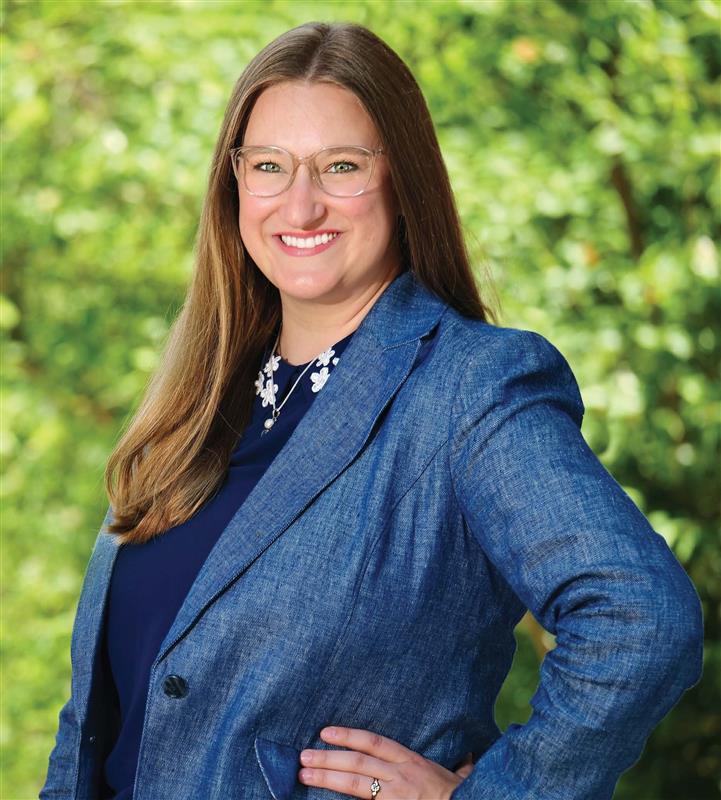 Email:hayley.beach@jhuapl.edu
Email:hayley.beach@jhuapl.edu
“I appreciated that I could take my entire program online. I never felt like I was somehow receiving lower quality than if I had been in the classroom. ”
Programs
We offer one program for our Space Systems Engineering degree—a Master of Science in Space Systems Engineering.
Space Systems Courses
Get details about course requirements, prerequisites, focus areas, and electives offered within the program. All courses are taught by subject-matter experts who are executing the technologies and techniques they teach. For exact dates, times, locations, fees, and instructors, please refer to the course schedule published each term.
Tuition and Fees
Did you know that 78 percent of our enrolled students’ tuition is covered by employer contribution programs? Find out more about the cost of tuition for prerequisite and program courses and the Dean’s Fellowship.
Why Hopkins?
When ambition meets opportunity, anything is possible. Earn your degree on your terms at Johns Hopkins Engineering for Professionals.
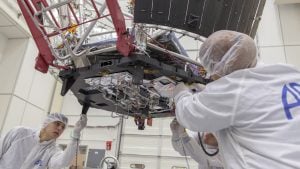
Network and Connect - Your knowledge is stronger with a network. In the applied and computational mathematics program, you will make career-advancing connections with accomplished scientists and engineers who represent a variety of disciplines across many industries. Learn More
Engineers See the World Differently - Watch our video to revisit the inspiration that sparked your curiosity in science and engineering.
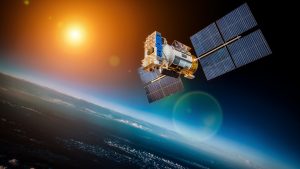
Beyond Rankings: We Help You Fulfill Your Vision - We’re proud of our ranking as one of the top online graduate engineering schools by U.S. News & World Report, but our true strength lies in much more than our numbers. Our number one goal is to prepare you for the space systems engineering career you’ve been dreaming of. Learn More
“The EP program offered the flexibility I needed to be able to complete my Master’s degree while working full-time and raising my young daughter. My instructors were always receptive to any communications and offered as-needed flexibility on assignments based on any personal or professional schedule conflicts I encountered. The ability to be able to complete most of my coursework from home, at a reasonable pace based on my schedule, was one of the defining characteristics of my experience. ”
Space System Engineering FAQs
Flexibility is the driving force behind all of our engineering for professional programs. As such, we let our students complete their master’s degrees within five years of acceptance. Pile on courses one semester or take one off. Find what works for you.
On average, space systems engineering alumni make upwards of $100,000 after completing their degrees.
Yes, however, applicants’ prior education must include an undergraduate or graduate degree in a quantitative discipline (eg: engineering, computer science, mathematics, physics, or equivalent) from a regionally accredited or university.
The Engineering for Professionals program was designed with working professionals in mind. Therefore, we offer both synchronous and asynchronous courses to accommodate your busy schedule.
Yes, you can apply as a non-degree-seeking student.
Academic Calendar
Find out when registration opens, classes start, transcript deadlines and more. Applications are accepted year-round, so you can apply any time.


